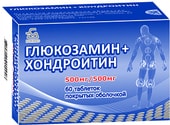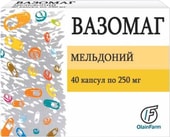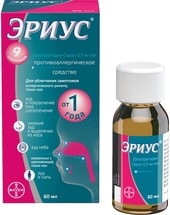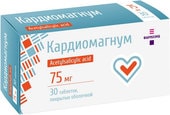-
×
 Ankle Stabilizer
1 × $399.00
Ankle Stabilizer
1 × $399.00 -
×
 Fluid cleaning spray PROF 30 ml
1 × $19.00
Fluid cleaning spray PROF 30 ml
1 × $19.00 -
×
 Borimed Glucosamine + Chondroitin, 500 mg, 60 tablets
1 × $39.50
Borimed Glucosamine + Chondroitin, 500 mg, 60 tablets
1 × $39.50 -
×
 Materials for fixation of removable dentures: Corega cream Refreshing taste 40
1 × $19.00
Materials for fixation of removable dentures: Corega cream Refreshing taste 40
1 × $19.00 -
×
 Si-Line Silicone Vacuum Massage Cups Set: 4 Cups, Face Brush & Case
1 × $39.00
Si-Line Silicone Vacuum Massage Cups Set: 4 Cups, Face Brush & Case
1 × $39.00 -
×
 OlainFarm Vasomag, 250 mg, 40 caps.
1 × $29.00
OlainFarm Vasomag, 250 mg, 40 caps.
1 × $29.00 -
×
 Pine Extract Briquettes (Direct from Manufacturer)
1 × $19.00
Pine Extract Briquettes (Direct from Manufacturer)
1 × $19.00 -
×
 Eyeglass Holder
1 × $649.00
Eyeglass Holder
1 × $649.00 -
×
 White Disposable Cat Mask
1 × $9.00
White Disposable Cat Mask
1 × $9.00 -
×
 Farmak Milt Spray, 10 ml.
1 × $19.00
Farmak Milt Spray, 10 ml.
1 × $19.00 -
×
 Angelini Tantum Verde spray 0.15%, 30 ml.
1 × $59.00
Angelini Tantum Verde spray 0.15%, 30 ml.
1 × $59.00 -
×
 Materials for fixation of removable dentures: Cream Corega Extra Strong mint 40g
1 × $19.00
Materials for fixation of removable dentures: Cream Corega Extra Strong mint 40g
1 × $19.00 -
×
 Terapia Faringosept, 10 mg, 20 ice.
1 × $29.00
Terapia Faringosept, 10 mg, 20 ice.
1 × $29.00 -
×
 Compression Socks for Varicose Veins & Sports: Beige, 23-32 mmHg, Closed Toe
1 × $29.00
Compression Socks for Varicose Veins & Sports: Beige, 23-32 mmHg, Closed Toe
1 × $29.00 -
×
 Bayer Erius Syrup, 0.5 mg / ml, 60 ml.
1 × $59.00
Bayer Erius Syrup, 0.5 mg / ml, 60 ml.
1 × $59.00 -
×
 Liquid Treger Extra iPeg Syringe
1 × $69.00
Liquid Treger Extra iPeg Syringe
1 × $69.00 -
×
 Sopharma Allergosan, 25 mg, 20 tab.
1 × $9.00
Sopharma Allergosan, 25 mg, 20 tab.
1 × $9.00 -
×
 Posture Corrector
1 × $49.00
Posture Corrector
1 × $49.00 -
×
 Belmedpreparations Riboxin, 200 mg, 50 tablets
1 × $9.00
Belmedpreparations Riboxin, 200 mg, 50 tablets
1 × $9.00 -
×
 Turmeric Tablets (90 x 500mg): Immune Support & Antioxidant Superfood
1 × $19.00
Turmeric Tablets (90 x 500mg): Immune Support & Antioxidant Superfood
1 × $19.00
Subtotal: $1,590.50
 Free worldwide shipping on orders $99+
Free worldwide shipping on orders $99+  US: temporary delays — postal services aligning new import rules,
US: temporary delays — postal services aligning new import rules,  EU: 1–2 weeks,
EU: 1–2 weeks,  Worldwide: 1–4 weeks
Worldwide: 1–4 weeks 











